JICA’s support to Northern Uganda was initially tailored at helping resettle internally displaced persons who had for two decades been forced into crowded camps, emergency shelters and informal settlements. After being resettled, JICA continued supporting the former internally displaced persons re-establish their lives in the communities in line with the Peace, Recovery and Development plan of the Government of Uganda. Tucked in this plan are a string of Programmes and projects, one of which is Reconstruction Assistance.
Programme in Northern Uganda (REAP)
Its objective is to revitalise conflict-affected communities. It also sets out to strengthen local government capacities and reduce regional economic disparities between the north and other parts of Uganda. In the first phase of the Programme which took place from 2009 to 2015, JICA provided reconstruction support to Acholi sub-region. The second phase of the Programme (2015 to 2020) had projects geared towards development of both Acholi and West Nile sub-regions.
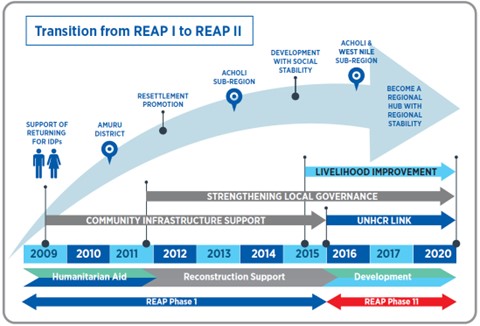
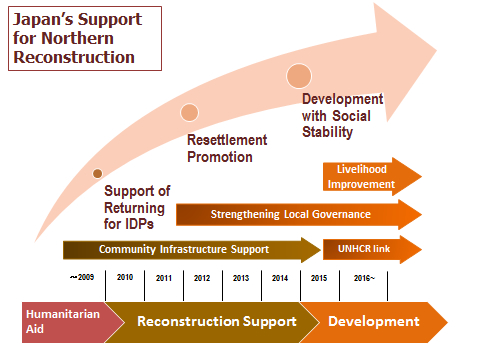
Community Infrastructure Development
Project for Rural Road Network Planning in Northern Uganda (RRNPN) 2009 - 2011
In response to the pressing needs for rehabilitating roads, RRNPN developed a "Master plan of the rural road network in Amuru and Nwoya districts including a road operational and maintenance plan". It also implemented pilot projects of bridge and road construction in Nwoya andAmuru districts to enable people return to their original villages from the IDPs.
Project for Rural Road Network Development in Acholi Sub- Region (RRNDA) 2011 – 2012
Rolled out from the RRNPN (2009-2011), RRNDA (2011-2012) aimed at developing a rural road network development plan to include national roads, district roads as well as community access roads and focused on all the seven districts of Acholi sub-region. This will heighten the promotion of resettlement of IDPs by improving access to social services and facilities.
Project for Social Infrastructure Development for Promoting Return and Resettlement of IDPs in Northern Uganda (INDEP) 2009 – 2012
This project is intended to revitalize conflict affected community of Acholi sub-region through construction and rehabilitation of roads and bridges in Acholi sub-region. The project comprised of 6 project sites in the districts of Gulu, Amuru, Nwoya, Agago and Lamwo.
Project for Community Reconstruction and Promotion of Resettlement of Former IDPs in their Original Villages (REPRE) 2012 - 2014
To strike a balance with the high rate of return and resettlement of former IDPs, JICA undertook this project which seeks to improve the lives of the returnees with improvement of basic infrastructure like construction of classrooms, teachers' houses, latrines, accessibility to safe water facilities for the pupils and proper roads to schools as well as construction of health facilities and supply of medical equipment.
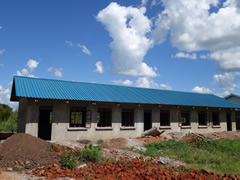
Project for Provision of Improved Water Source for Returned IDPs in Acholi Sub-region (Acholi Water) 2013-2015 (Grant Aid)
The project targets: Construction and rehabilitation of about 70 water points (boreholes), construction /Rehabilitation of 6 piped water systems in Rural Growth Centres (RGC), supporting the capacity of Local Government on water point maintenance and strengthening community-based water management system.

Strengthening Local Governance
Project for community Development for Promoting Return and Resettlement of IDPs (CDRET) 2009 – 2011
To enhance the administrative capacity and structure of local government in service delivery to communities, the CDRET project was conceived. It involved a multi-sectoral approach intervention which included opening of community roads, drilling of boreholes, building of administrative blocks for sub county and district staff and promotion of agriculture in Amuru district before it was divided into Nwoya and Amuru.
Project for Capacity Development in Planning and Implementation of Community Development in Acholi Sub-region (ACAP) 2011-2015 (Technical Cooperation)
The project is intended to strengthen the mechanism for planning and implementation of community development in all seven Districts in Acholi Sub-region through capacity building of local governments in development planning and implementation, and sharing experiences and lessons learned among districts.
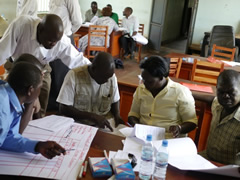
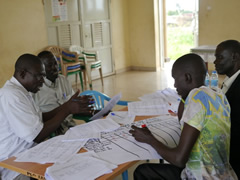
Project for Capacity Development of Local Government for Strengthening Community Resilience in Acholi and West Nile Sub-regions (ACAP2) 2016-2021 (Technical Cooperation)
ACAP had attained strengthening capacity of local government in development planning in all seven Districts and enhancing capacity of implementation of community development plan mainly in four Districts (Amuru, Pader, Kitgum, and Nwoya) in Acholi Sub-Region. To sustain planning capacity and to further strengthen implementation capacity of all seven Districts in Acholi Sub-Region, and to scale up ACAP to West Nile Sub-Region also in Northern Uganda, ACAP2 was formulated. West Nile Sub-Region is located at the border with South Sudan and Democratic Republic of Congo and many of the refugees get into West Nile Sub-Region. This new challenge started in June 2016.
Project for Strengthening Refugee Hosting and Refugee affected districts of West Nile (PROCEED)
The Project seeks to improve the capacity of Local governments in the target districts in planning and implementation of integrated development plans and emergencies. Its duration is 5 years (2021 to 2026), and its components are;
- Capacity development of local government integrated development planning. This emphasizes the support to local government to be able make development plans with the consideration of the issues of Refugees.
- Emergency planning and response aimed at supporting the local governments to build capacity to respond to emergencies such as COVID-19, floods, draught etc, effectively and efficiently.
- Community development with a view of enhancing household and community livelihood to build resilience.
The main counterpart for this project is the Ministry of Local Government and sub counterparts are the Office of the Prime Minister and National Planning Authority. The project is being implemented by the district local governments of West Nile both refugee hosting districts and affected districts. In total 12 districts with support from the JICA project team (JET)/ consultants.
Livelihood Improvement
Northern Uganda Farmers' Livelihood Improvement Project Second Phase (NUFLIP II) 2021-2026(Technical Cooperation)
NUFLIP, a project based on market-oriented agricultural production, is a major contributor to the National Development Plan III (NDPIII) objective of increasing market access and competitiveness of agricultural products in domestic and international markets. In this respect, NUFLIP Phase I delivered tangible achievements that were considered paramount importance by the MAAIF and JICA for improving the livelihoods of vegetable farmers in Acholi Sub-region. NUFLIP Phase II is upscaling the attained achievements for a bigger number of farmers in Acholi sub-region through offering technical guidance on dry-season cultivation and Quality of Life improvement.
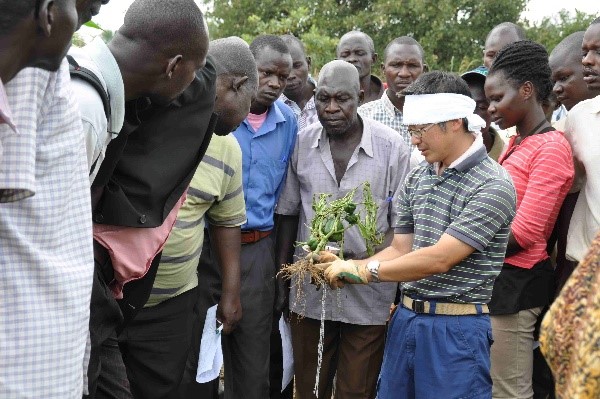
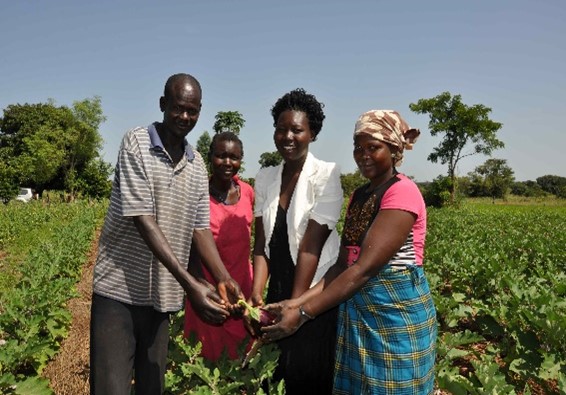
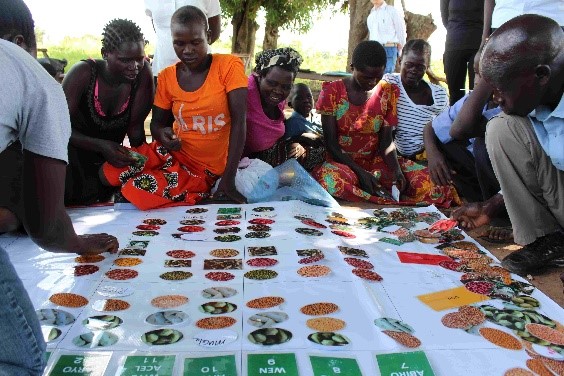
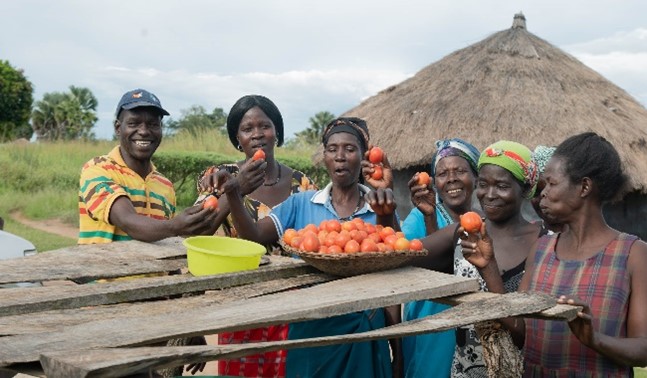
Addressing the Protracted Refugee Situation
In Uganda, JICA and international organizations including United Nations High Commissioner for Refugees (UNHCR) cooperate to address the protracted problem of refugees and help refugees as well as their host communities aiming to attain the self-reliance and living with harmony. The duo has cooperated to offer training in rice cultivation techniques in Uganda to refugees from the Democratic Republic of the Congo and South Sudan as well as their host communities. Japan is determined to promote to strengthen humanitarian-development collaboration to address the protracted refugee situation in Uganda.






scroll